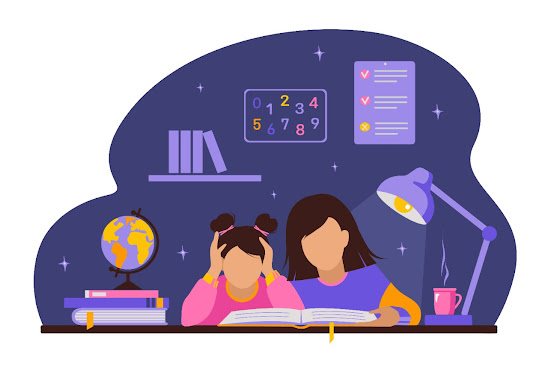There are several tactics and activities that might help young children enhance their attention and concentration. Here are some suggestions for improving preschoolers' concentration:
1. Conducive Learning Environment to Improve Child Concentration:
Your preschooler's surroundings might be a major distraction at times. Set up a distinct, clutter-free learning environment in your home that is pleasant for your youngster. To improve your child's attention span, learn about the surroundings he or she enjoys.
In certain circumstances, children's concentration levels are higher when the learning environment is calm and tranquil, but other children do better in a busy atmosphere. Reducing distractions can help youngsters improve their attention span.
2. A flexible routine can help a in child's concentration:
A healthy habit for children, especially while we navigate the uncharted seas of the epidemic, may be beneficial in a variety of ways. Routines give structure, regularity, and optimism in both physical and mental health.
Preschoolers require some type of regularity because it provides them with a sense of security in knowing what is ahead. All of this contributes to children's increased attention span. Visit a best preschool in Indore can help you in maintaining a flexible routine.
3.Include planned breaks in the routine:
When attempting to answer the topic of how to develop attention power, we frequently overlook the fact that continual learning, whether online or offline, can lead to a youngster losing focus. Brain breaks are vital for de-stressing and are one method of improving attention by not overburdening them.
4. Break the Tasks in Small Steps
A youngster of any age may find it difficult to study a full chapter or clean out their entire cabinet. Trying to do too much at once might be distracting for toddlers. Breaking a work down into smaller portions might help your child's attention span. Completing a minor chore will give your child a sense of success and will encourage them to do more.

Comments
Post a Comment